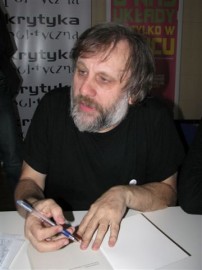
A new publication denounces the European Union’s Brussels establishment (or perhaps that should read Establishment) for its contemptuous attitude towards the public. Bruno Waterfield and Chris Bickerton are critical of the way in which the EU institutions represent the member state governments and enable them to fix up deals behind closed doors, deals which extend beyond legislative and budgetary questions as far as issues of fundamental rights and even the constitution itself.
(You can read the arguments here.)
Anyone familiar with this blog will share many of the same concerns. But what should be done to rectify the problem?
The easy answer is to reject the Lisbon treaty, but that is only half an answer. All the complaints are about not the Lisbon treaty itself (which is not in force) but about the present status quo. To protest against the status quo by defending it against change is an incomplete response.
Over and over again, the complaint is that the EU follows secretive methods and procedures: the meetings are held in private; there are no proper public records; everything is agreed before anything becomes public. But that is how diplomacy works. The solution is to replace diplomacy with democracy: it’s quite a substantial conceptual leap, but once you have made it, the solutions become fairly straightforward. For example, there is a ready-made way for the Council of Ministers to deal with legislation in a proper manner, as is described here.
On the subject of referendums, the Manifesto Club is on still shakier ground. It is no good calling for “a pan-European political response” while saying that the voters voted No to the European constitution. There were four referendums in 2005, not two, and in aggregate more voters voted Yes than voted No (26 million to 22 million). The pan-European response was in favour, it was the national response that in some countries was against.
Slavoj Žižek is surely right, though, in observing that “The Irish voters were not presented with a symmetrical choice” – a Yes vote would lead to the ratification of the treaty, whose terms were written down in black and white and available for all to see, whereas a No vote would lead to who knows what. But isn’t that a further benefit of the transition from diplomacy to democracy? Democracy runs along observable lines, with rules and procedures and predictability. Diplomacy, by contrast, has no rules, and the procedures it attempts to follow in place of those rules are the very procedures that we were complaining about above.
It is not true, though, pace Žižek, that “the very terms of the referendum gave preference to a Yes.” If, as he says, the referendum “consisted of ratifying the inevitable”, we wouldn’t be having this discussion now. It is entirely open to any member state to stay out of the European Union if it wishes, as Norway has chosen to do.
Bruno Waterfield’s essay concludes with the ringing declaration that:
“Today there are two sides in Europe: those who believe that Yes is the only answer to the EU, and those who call for political structures and decision making to be part of the public domain.”
The people who object to the EU on principle might not recognise themselves in that description of the debate about the future of Europe, the federalists – the people who champion democracy over diplomacy at the European level – don’t accept that Waterfield’s two propositions are necessarily in conflict.
It is one thing for opponents of the current EU to demand something better: it is another thing for them to describe what it should be. The Manifesto Club’s pamphlet is silent on what the alternative might look like. The debate remains about the implementation of the terms of the Lisbon treaty, either by ratification in Ireland or, within the existing treaties, of those parts which are compatible. We still await more democracy in Europe: via Lisbon is the most likely route.
